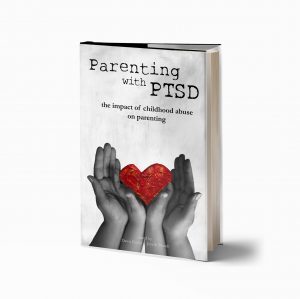My name is Kizzie and I am the founder of Out of the Storm (OOTS), an online support/ discussion forum and web site for people affected by Complex PTSD. OOTS started in August 2014 with three members and has grown to almost six thousand in the past four years. It’s unfortunate that there are so many of us, but at the same time it is good to have somewhere to connect and learn more about this response to traumatic stress.
One common issue OOTS members talk about is that medical/mental health professionals and supporting agencies (e.g., social services, health insurers) are often not aware of the differences between PTSD and Complex PTSD. This is problematic because treatment, services and support necessarily need to be somewhat different. Many new members are also confused so part of OOTS mission has become to educate professionals, survivors and the public about the similarities and differences.

The major difference between Complex PTSD and PTSD is the number of symptoms; Complex PTSD has six while PTSD has three. Complex PTSD (or Complex Trauma as it is also called) shares three symptoms with PTSD:
- RE –Re-experiencing the trauma in the present (visual/emotional flashbacks; nightmares)
- AV – Avoidance of traumatic reminders (triggers such as thoughts and feelings, people, places, things)
- SOT – Persistent sense of threat (hypervigilant, increased arousal, startle response)
Complex PTSD has three additional symptoms which are not associated with PTSD, however, and relate to disturbances in one’s sense of self or self-organization:
- AD – Affective dysregulation (heightened/flattened anger, sadness, joy)
- NSC – Negative self-concept (shame, critical of self/others; feeling inferior)
- DR – Disturbed relationships (isolated; feeling different than others; social anxiety)
The trauma individuals who develop Complex PTSD experience attacks the spirit, one’s feeling of being loved and valuable. It is the result of ongoing or repeated trauma and most often involves interpersonal abuse/neglect by someone who is significant to/in a position of authority over the person (e.g., childhood sexual/physical/emotional abuse by a parent; domestic violence; sexual harassment by an employer). PTSD on the other hand, generally results from a single incident or shorter-term trauma (e.g., car crash, being the victim of a crime, or natural disaster), and does not affect one’s identity or sense of self in the same way as is the case in Complex PTSD.
In both cases survivors and their families need more accessible, relevant, and lower cost trauma-informed treatment, services and support. It is wonderful to see Dawn and Joyelle’s efforts to raise awareness about the need for trauma informed families and provide guidance in how to parent in a grounded, positive manner. It is also heartening that those of you in the group and/or reading their book are making the effort to find out about how your trauma might influence your parenting and are looking at ways you can change that. Kudos to all of you and please feel free to visit us at OOTS if you would like more information or to join – http://www.outofthestorm.website/.
